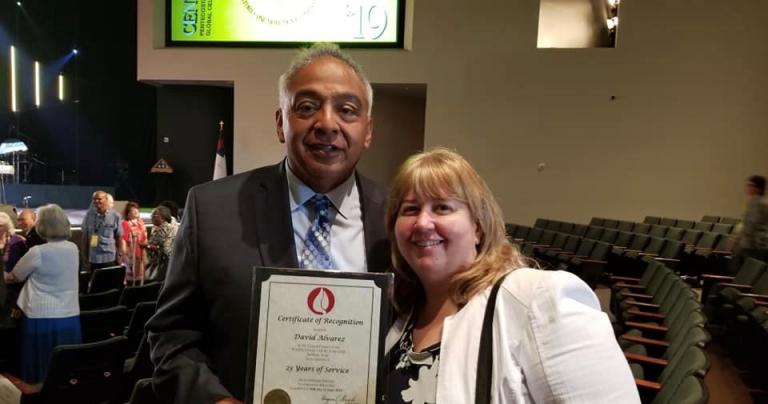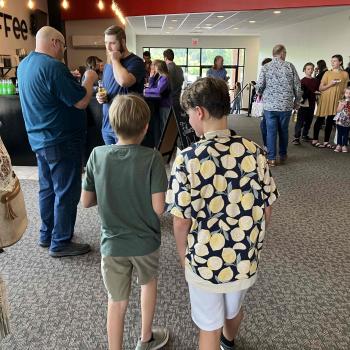There is a band of fiber-like materials that connect the left and right hemispheres of the brain called the corpus collassum. It has long been argued that this band of connective tissue is larger in the female brain than in the male brain. Literature on this abounds, and of course there are two sides to the coin, so I feel no pressing need to cite sources. What if this is true? What are the implications?
First of all, as someone who works with people, I would be curious as to how differently women might view their relationships. After all, they may have an advantage when it comes to integrating and synthesizing all types of information, including relational information.
Secondly . . . well there is no secondly. It’s quite possible that I would be entering an arena of scholarship where even angels fear to tread.
Respect
So for the sake of this writing, I’m wondering if it is possible that women somehow are hardwired to view relationships differently. In light of the ongoing corpus collassum academic dialogues, it would be possible that the world of relationships is somehow more interconnected for females.
With that in mind, I’d like to review Paul’s marriage passage one last time. How could we view this passage through the eyes of interconnection? For men, and for Christ with His church, we can easily look at this passage through the actions . . . the roles . . . the doing. However, what can we glean by looking as this passage through the wife’s lens . . . or as the Bride of Christ . . . as a receiver rather than a doer?
Subordination, Sanctification, & Sacrifice
Since I have dealt with the principle of submission and subordination for the home and church at length, I won’t return to Ephesians 5.22-24. The following links are related articles:
Submission in the House of God
Likewise, I have posted articles related to sanctification, which is a principle found in Ephesians 5.25-27. Follow these links to read about sanctification:
The Sanctity of Water & the Word
Revisiting the Wife’s Role as Help Meet
Suffice it to say at this point that subordination and sanctification are best viewed in light of the response of the church to the activity of Christ. We can only hope and pray to reflect this activity in the marital relationship, and it seems to be quite possible.
Likewise the sacrifice of Christ for the church is reflected in the husband’s love for his wife:
Husbands, love your wives, just as Christ loved the church and gave himself up for her – Ephesians 5.25, NRSV
Pastor Robert Morris clarifies verse 25: “Giving up your life for your spouse means recognizing and honoring his or her needs and desires, especially when they are different than yours.”[1] It is a very noble thing for a man to give his life for his wife.
On a daily basis, is it more difficult to lay down one’s pursuits to elevate those of one’s wife? Is it possible to not only die for the wife, but to live for her in mindful self-sacrificial love?
If we understand these principles of subordination, sanctification, and sacrifice, we see that the church and the wife are recipients of or responders to, the activities of Christ and the husband.
Nurture
In the same way, husbands should love their wives as they do their own bodies. He who loves his wife loves himself. For no one ever hates his own body, but he nourishes and tenderly cares for it, just as Christ does for the church, because we are members of his body. – Ephesians 5.28-30
We often think of the wife as the nurturer, the one that broods over the home and its members. In a way, this is a role that Paul urges the husband to pick up. “She should be treated with the same dignity and respect and care as he would give himself. What Paul urged here was countercultural.”[2] In many ways, the wife may naturally be the nurturer in the home, but the husband nurtures her.
The word “nourishes” or to nourish means to nurture and to cherish. It implies to keep warm and to share tender love and care. It can also signify close physical contact, and even an intimate kiss.
Some ancient near East (aNE) Household Codes make room for the wife to bring something to the table of the husband’s vocation. In that era, the wife’s honor is usually tied to her husband’s honor or her father’s.
What makes the Christian Household Code different is not honor, but the self-sacrificial love of the husband. It’s modeled after the love Christ has for His church. This makes all the difference.[3]
One simple question
One of the ways that love plays out is found in the verses quoted in this passage (Genesis 2.23-25; Matthew 19.4-6; Mark 10.6-9; 1 Corinthians 6.16).
“For this reason a man will leave his father and mother and be joined to his wife, and the two will become one flesh.” – Ephesians 5.31
In the aNE the majority of the people groups are patrilocal. In other words, families, tribes, and communities are built around the father, the patriarch, the oldest living male. From the start, the Bible offers a simple way for husbands to show a level of self-sacrifice. Husbands can be willing to move away from the familiar.
Does this mean that husbands have to relocate to be live near their in-laws? That is a question for each husband. However, I believe that a great question is raised by this recurring verse, one that is not asked in the aNE. Instead of the husband asking What is best for my future? . . . the husband now asks What is best for our future?
This one simple question elevates the role and purpose of the wife to heights that are not seen in history up until the time of Christ in the aNE. Furthermore, nurturing the wife represents what Christ does for His people:
This is a great mystery, and I am applying it to Christ and the church. – Ephesians 5.32
Respect or reverence
It is within this context of a love that is received and shared, that the wife’s respect for the husband naturally flowers. Even if respect slowly grows in the relationship, love must continue to be exchanged. For the husband, Emerson Eggerichs declares, “Never blame your lack of love on her lack of respect. Your lack of love is disobedience to Ephesians 5:33a.”[4]
Each of you, however, should love his wife as himself . . .
Respect is translated as reverence in the King James Version. Of course, there are some in our day and age who will not appreciate any use of these terms respect or reverence. Nonetheless, they’re Biblical terms. Respect means fear and awe. It is the same terminology for our reverent response to God throughout Scripture. In the same way that husbands show unconditional love, the wives are to show unconditional respect. It is written into the Text. “This word ‘respect’ is the same as that translated ‘reverence’ in 5:21 with respect to one another.”[5]
Be subject to one another out of reverence for Christ. – Ephesians 5.21
Honor is the number one need in a man’s life – it’s the key to his heart. A husband will never open up emotionally if his wife doesn’t honor him. Men are much more sensitive to words than we often realize. The key to connecting to a man’s heart is not what you say but how you say it.[6]
Even if the husband is slow to mature in self-sacrificial love, the wife is to continue to offer unconditional respect. Emerson challenges wives with these words: “Never blame your lack of respect on his lack of love. Your lack of respect is disobedience to Ephesians 5:33b.”[7]
. . . and a wife should respect her husband.
If the husband withholds love or if the wife withholds respect, then Scripture is not being adhered to, and dysfunction is the result. On the other hand, if either or both spouses commit to do what God has asked them to do, blessing follows.
“His love blesses regardless of her respect;
Her respect blesses regardless of his love.”[8]
Bishop David & Annita Alvarez

Thumbnail and YouTube featured image: Bishop David & Annita Alvarez | Eaton, CO | 12.22.19 | used with permission
Crystal and I served on pastoral staff for the Alvarezes in Santa Cruz while we completed Bible College. After that season, they went on to plant a church in Eaton, Colorado. He eventually served as the District Secretary before becoming the Bishop of the Rocky Mountain District. Now he also oversees the Northwestern Division of the United States as an Assistant General Bishop for the Pentecostal Church of God.
Having the honor to serve with Pastor David and Annita at various times since Bible college, my wife and I not only look up to their leadership example, but also to their exemplary relationship. They are both true pioneers and builders in the PCG. Annita’s respect and support of her husband has been evident at every tier of each structure they’ve built, from their family properties to their local church, from building up parishioners and families to building up our ministerial organizational structure.
Rev. Jared Ingle
Pastor: Long Lake Friends Church
Supervised Therapist: personal, couples, families
Traverse City, MI
series articles:
Submission CLICK HERE
Submission in the House of God CLICK HERE
The Sanctity of Water & the Word CLICK HERE
The Husband as Kephale CLICK HERE
Paul on the Role of Husband & Savior CLICK HERE
Revisiting the Wife’s Role as Help Meet CLICK HERE
Love CLICK HERE
series sermons:
Submission CLICK HERE
Sanctification CLICK HERE
Sexuality CLICK HERE
Husband, Head & Savior CLICK HERE
Revisiting the Wife’s Role as Help Meet CLICK HERE
Love CLICK HERE
notes:
Click any of the following links to buy directly from my Amazon store. Thanks!
[1] Robert Morris, “Happy Wife, Happy Life,” in the Fresh Start Bible: Direction for Every Day, ed. John Andersen (Southlake, TX: Gateway Press, 2019), 1046.Amazon: https://amzn.to/31vauN8
[2] Frederick J. Long, OneBook Daily-Weekly: The Letter to the Ephesians (Franklin, TN: Seedbed Publishing, 2017), 118. [3] David A. deSilva, Honor, Patronage, Kinship & Purity: Unlocking New Testament Culture (Downers Grove, IL: IVP Academic, 2000), 232.Amazon: https://amzn.to/2vXy6hR
[4] Emerson Eggerichs, Love and Respect: The Love She Most Desires, The Respect He Desperately Needs (Colorado Springs, CO: Focus on the Family / Thomas Nelson, 2004), 307.Amazon: https://amzn.to/3bkQEIX
[5] Long, 118. [6] Morris, “Happy Husband, Happy Home,” in the Fresh Start Bible, 1045. [7] Eggerichs, 307. [8] Ibid., 262.










